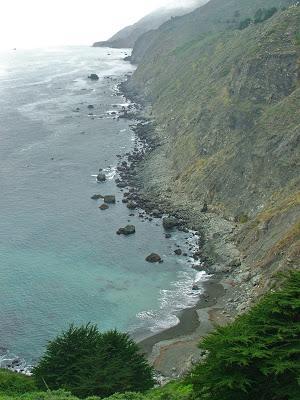
Memento (n.): an object kept as a reminder of an event or person.
My knick-knacks are dominated by rocks. But they're not just rocks. For in addition to sand, silt, quartz, feldspar, anorthosite and serpentinite, they contain memories.
Some are mementos of events: magma almost but not quite reaching the surface; raging rivers carrying debris from disappearing mountains; a rift tearing the continent, fortunately stopping in time to keep the country whole. (I'm exaggerating—it ceased hundreds of millions of years before the colonies left England.) Others remind me of people: early explorers of the American West; pioneering geologists; 19th-century naturalists; today’s geo-bloggers.


“Hillers trachyte is a pale gray paste with large white crystals of feldspar and crystals large and small of hornblende.” Grove Karl Gilbert.
In 1869, while traveling down the Colorado River, John Wesley Powell spotted an unnamed cluster of peaks in the distance, which he christened the Henry Mountains. He presumed they were volcanic. Volcanic mechanisms were a hot topic at the time, so he sent the great pioneering geologist, Grove Karl Gilbert, to investigate. Gilbert discovered the mountains were not volcanic. In fact, they didn’t match any type of uplift then known. He concluded the Henrys were created by shallow intrusions of magma. He would describe and name this new type of uplift, calling it a laccolith.In 2012, I camped where Gilbert had camped, at the base of Mount Hillers. I hiked up the slope to look at sedimentary strata tilted nearly vertical by intruded magma. A piece of “Hillers trachyte” went home with me as a memento.

South side of Mount Hillers.

Large crystals mean magma cooled underground rather than on the surface, as would be the case for a volcano.
• • •
Igneous and metamorphic stones pose on a sandstone boulder.
Three years ago, while walking up a draw in the sandstone country of eastern Utah, I was surprised to find rounded polished stones made of igneous and metamorphic rock. What are they doing here?! I was even more astounded when I read that they came from the ancient Uncompahgre uplift, which hasn't been around for at least 80 million years. These stones are ghosts of mountains past.Enchanted by their story, I returned last year and followed the Cutler Formation south almost to Arizona. There, far from the source, the Cutler is made of sand and silt instead of cobbles. On the way home, I stopped near Gateway, Colorado, where the Cutler includes cobble/boulder conglomerates, indicating the source had been close by. I was standing on the "slopes" of the ancient Uncompahgres! I took home several ghostly mementos.
Coarse conglomerate deposited on the slopes of the Uncompahgre uplift.


• • •

The deceptive Uinta sandstone.
A billion years ago, the supercontinent Rodinia, which included North America, was coming apart. A tear ran east from the vicinity of today’s Salt Lake City. It eventually failed, but streams continued to fill the rift valley with sediments to a depth of some four miles! By the 1870s, it had become a sandstone that fooled the great geologists—Hayden, King, Emmons and Powell. None had expected to find sandstone that old (Precambrian).It fooled me too. The cores of our mountain ranges usually are made of granite and metamorphic rocks. I thought maybe the mileage in the guidebook was wrong.

This is the Precambrian core of the Uinta Mountains?!

Layers of sediments deposited in a rift that once threatened to split the continent.
• • •

Sparky contemplates his humble role in the universe.
On my drives from Laramie to the West Coast, I’ve stopped a half-dozen times at the Lunar Crater area in central Nevada. I like to camp in the wide open country there, free of crowds and regulations. Usually I hike, and take photos of the amazing landscapes. But one time I set out in search of mantle material in a lava field (the mantle is the molten layer beneath the Earth’s crust, miles below the surface).Volcanic magma sometimes carries up pieces of the mantle. I was looking specifically for olivine—greenish and a bit translucent. I think I found some. (I used Geology Underfoot in Central Nevada as a guide).

Green olivine, with pale plagioclase and dark pyroxene behind.


The Black Rock lava flow.
\• • •
Strolling down a river, atop a ridge.
My most recently-acquired geological memento is the lithified remains of a river. Camels, rhinos and ruminating hogs used to come here to drink, 19 million years ago. Now a trail follows the river bed—on top of a ridge! In other words the valley bottom now stands high, thanks to topographic inversion.
The “little gray potatoes” are calcified silt nodules.

Silt nodules and sand, with bits of quartz from the Rocky Mountains. Not until I took the macro shot did I notice the tiny lichen "cups" (upper left; click on image to view).
• • •And finally ... a rock wall?



The summit?
No.

The Big Sur Coast, land of dreams and mystery. Photo by R. Koeppel.
The elements took their toll—the green rock was weathered and broken. A fragment traveled down an ephemeral river, almost reaching Pacific Ocean. But I intercepted it. That’s the other memorable event.


The dogs found this rock portrait stuff quite boring.
